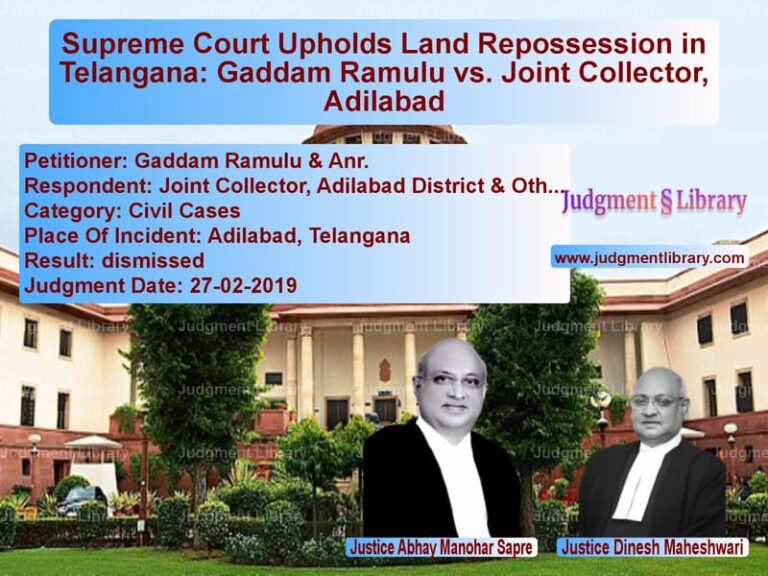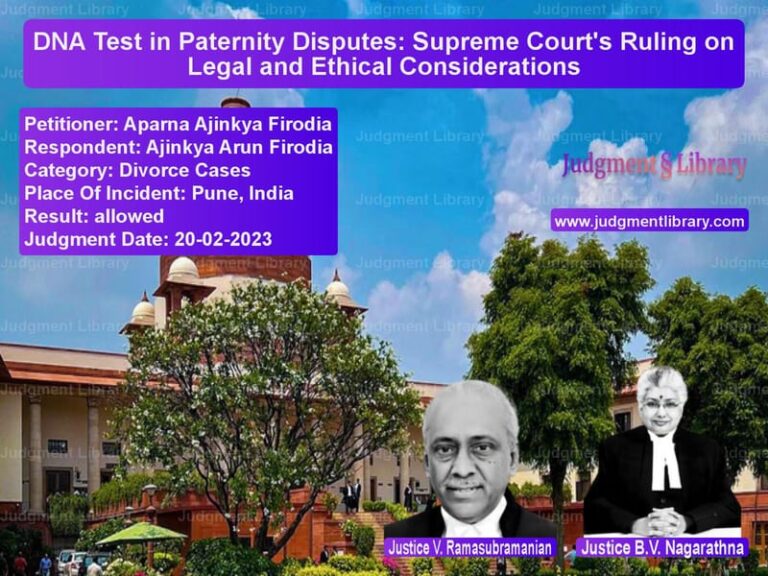Supreme Court Upholds Bihar’s Royalty Demand on Minor Minerals
The Supreme Court of India has ruled in favor of the State of Bihar, allowing the government to collect royalty on minor minerals at an enhanced rate retrospectively from April 1, 2001. The ruling overturned the judgment of the Patna High Court, which had limited the retrospective application of the notification revising the royalty rate.
Background of the Case
The case involves disputes over the rate of royalty applicable to boulders, gravel, and shingle extracted from rivers in Bihar. The respondent, Ramesh Prasad Verma (now deceased, represented through legal representatives), had been granted a mining lease under the Bihar Minor Mineral Concession Rules, 1972. The issue arose when the Bihar government issued a notification on March 24, 2001, revising the royalty for these minerals to Rs. 100 per cubic meter, effective from April 1, 2001.
However, the government later issued another notification on December 26, 2001, identifying the specific districts where this rate would apply. The respondents challenged the retrospective application of the revised rate before the High Court.
High Court’s Judgment
The Patna High Court ruled that the revised royalty rate of Rs. 100 per cubic meter could only be enforced from December 26, 2001, when the specific areas were notified. The court reasoned that until the notification explicitly identified the areas, lessees could not have anticipated the higher royalty rate.
Supreme Court’s Observations
The Supreme Court disagreed with the High Court’s reasoning and held:
“The notification dated 26.12.2001 is clarificatory in nature, merely identifying the areas where the minerals are extracted, and does not alter the revised rate of royalty set by the earlier notification of 24.03.2001.”
The Court further stated:
“A clarificatory or explanatory notification that supplies an obvious omission or clears up doubts is generally intended to have retrospective effect.”
To support its decision, the Court referred to precedents establishing that amendments of a clarificatory nature can operate retrospectively unless the law explicitly prohibits it.
Final Judgment
- The Supreme Court set aside the judgment of the Patna High Court.
- The Bihar government’s demand for royalty at the revised rate from April 1, 2001, was upheld.
- The respondents were directed to pay the outstanding royalty in accordance with the revised rate.
Conclusion
This ruling reinforces the principle that clarificatory notifications can have retrospective effect, provided they do not introduce new liabilities but merely confirm an existing legal position. The judgment is a significant victory for the Bihar government in its effort to regulate mineral extraction and revenue collection effectively.
Don’t miss out on the full details! Download the complete judgment in PDF format below and gain valuable insights instantly!
Download Judgment: State of Bihar & Ors vs Ramesh Prasad Verma Supreme Court of India Judgment Dated 31-01-2017.pdf
Direct Downlaod Judgment: Direct downlaod this Judgment
See all petitions in Income Tax Disputes
See all petitions in Judgment by Arun Mishra
See all petitions in Judgment by Amitava Roy
See all petitions in allowed
See all petitions in supreme court of India judgments January 2017
See all petitions in 2017 judgments
See all posts in Taxation and Financial Cases Category
See all allowed petitions in Taxation and Financial Cases Category
See all Dismissed petitions in Taxation and Financial Cases Category
See all partially allowed petitions in Taxation and Financial Cases Category







